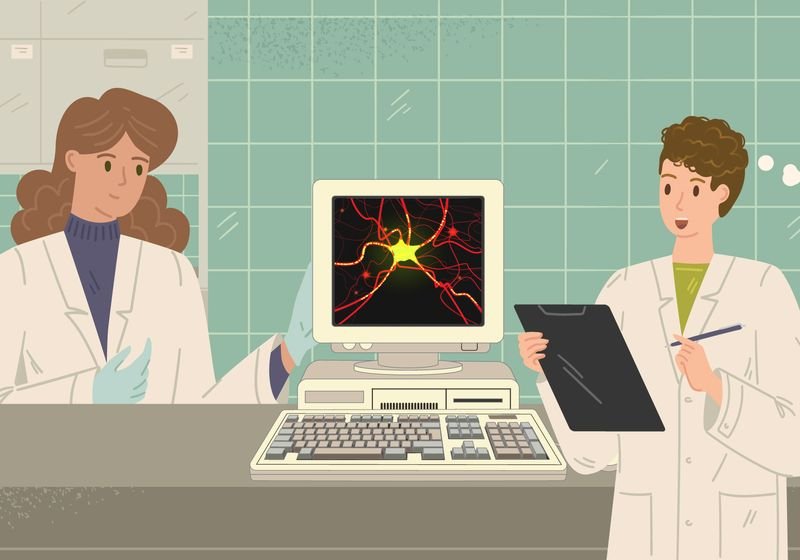
As a doctoral student in Ann Marie Craig’s laboratory at the University of Illinois, Urbana-Champaign, I studied what directed two glutamate receptors to their positions for functions in hippocampal neurons. Suspecting that the cytosolic end of the protein may be responsible, I swapped the C-terminal tails of these proteins to create chimeras. To facilitate the detection of both chimeras and the two original proteins in my different cell cultures, I inserted a sequence for a three amino acid tag into the N-terminus of all my proteins that I could detect with an antibody.
Julia Darby, today a private tutor for school districts in Iowa and Illinois, was a graduate student studying glutamate receptors at the University of Illinois, Urbana-Champaign. She learned after she defended her dissertation that some of her methods may not have worked like she thought.
Julia Darby
When I expressed the different protein constructs in neuron cells in culture, I demonstrated that these C-terminal tails determined the localization of the glutamate receptors. I also got beautiful images that illustrated one receptor was found in the axons and the second one localized along the axon and in the dendrites, and they were so stunning that Neuron selected them for the issue cover when we published the data.
I defended my PhD with this success story and moved to Washington University in St. Louis to pursue a postdoctoral position. Roughly a year later, a postdoctoral researcher in Craig’s lab followed up on my project to study the native receptors. Their data showed that my receptor that appeared homogenously along the axon in fact clustered in its places on the axon and synapse. It turned out my introduced tag interrupted this activity, so the proteins didn’t interact with each other like they should have.
When I learned about the discrepancy, my first thought was that I was glad I already had my PhD completed. We didn’t retract the paper, because although the arrangement we observed was wrong, our findings regarding the role of the C-terminus were correct.
The incident serves as a reminder for me that in science, we ask a lot of questions, but how we answer them is often more important than the results themselves.
This interview has been edited for length and clarity.
Share your best worst mistake with us for a chance to be featured in the Epic Fail column.






